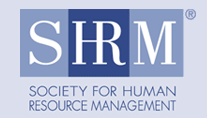Microaggressions and Allyship Can’t Coexist: Skills for Creating Safer Workplaces for People of Color
Research shows that subtle acts of exclusion (microaggressions) continue to happen to people of marginalized identities. These interactions, committed by well-meaning people, threaten inclusion in our workplaces. The disproportionate burden falls on those who experience the interaction - to either let it slide or to speak up and potentially face repercussions. We need allies to recognize these subtle interactions and to speak up for colleagues in order to create open, trusting, and inclusive cultures.
Learning Objectives:
Deeply understand how subtle acts of exclusion (microaggressions) threaten workplace inclusion.
Practice recognizing subtle acts of exclusion that happen to people of different marginalized identities. Learn best practice guidelines for speaking up as an ally for colleagues who experience subtle acts of exclusion.
Practice productive conversations about subtle acts of exclusion from different perspectives.
Visualize how this active allyship can increase openness, kindness, trust, and inclusion in workplace cultures.
Michael Baran

Dr. Michael Baran is the CEO of Iris Inclusion, a global diversity, equity, and inclusion (DEI) firm. Dr. Baran draws on his own social science research to inform his DEI speaking engagements, writings, consulting, leadership development, and eLearning. After teaching at Harvard University, he has been supporting DEI in organizations for 20 years. His work has been covered in the New York Times, BBC, Forbes, CNN, NPR, and more.
His recent book, Subtle Acts of Exclusion, was named by Forbes as one of “The 11 Books To Read To Be A More Inclusive Leader” and has won several awards.
Find Sessions by Day
Find Sessions by Speaker
Find Sessions by Topic
- Select Track
- Accessibility
- Civility & Dignity
- Compliance
- Conscious Inclusion
- Equity
- I&D Strategy
- Inclusive Hiring & Employee Well-being
Find Sessions by Credit Type
- Select Credit Type
 SHRM PDCs
SHRM PDCs TBD
TBD
Find Sessions by Competency
- Select Competency
- Business Acumen
- Communication
- Global & Cultural Effectiveness
- HR Expertise
- Leadership & Navigation
- Relationship Management
Find Sessions by Intended Audience
- Select Intended Audience
- All Levels
- Trailblazing

